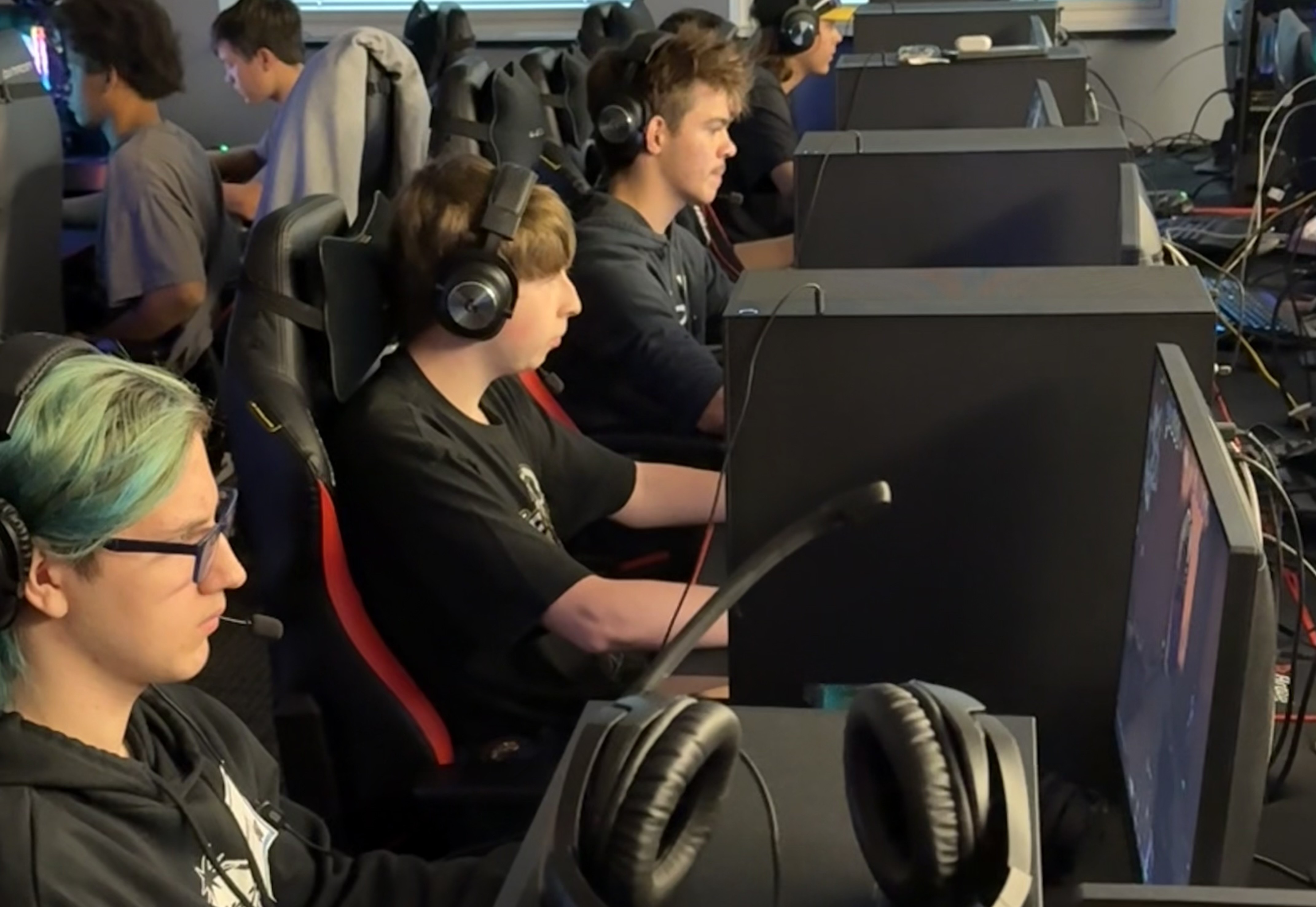Game Changers: Tech & Learning’s Most Inspiring in EdTech in 2019
A review of this year’s innovators and inspiring edtech leaders doing extraordinary work.
What does it mean to innovate?
According to one of its definitions in Merriam-Webster, it can mean to effect change. This year, Tech & Learning editors have selected their annual list of innovators that they believe are doing extraordinary work in the edtech space. A few may surprise you.
Iran Davar Ardalan
Founder and Storyteller-in-Chief, IVOW
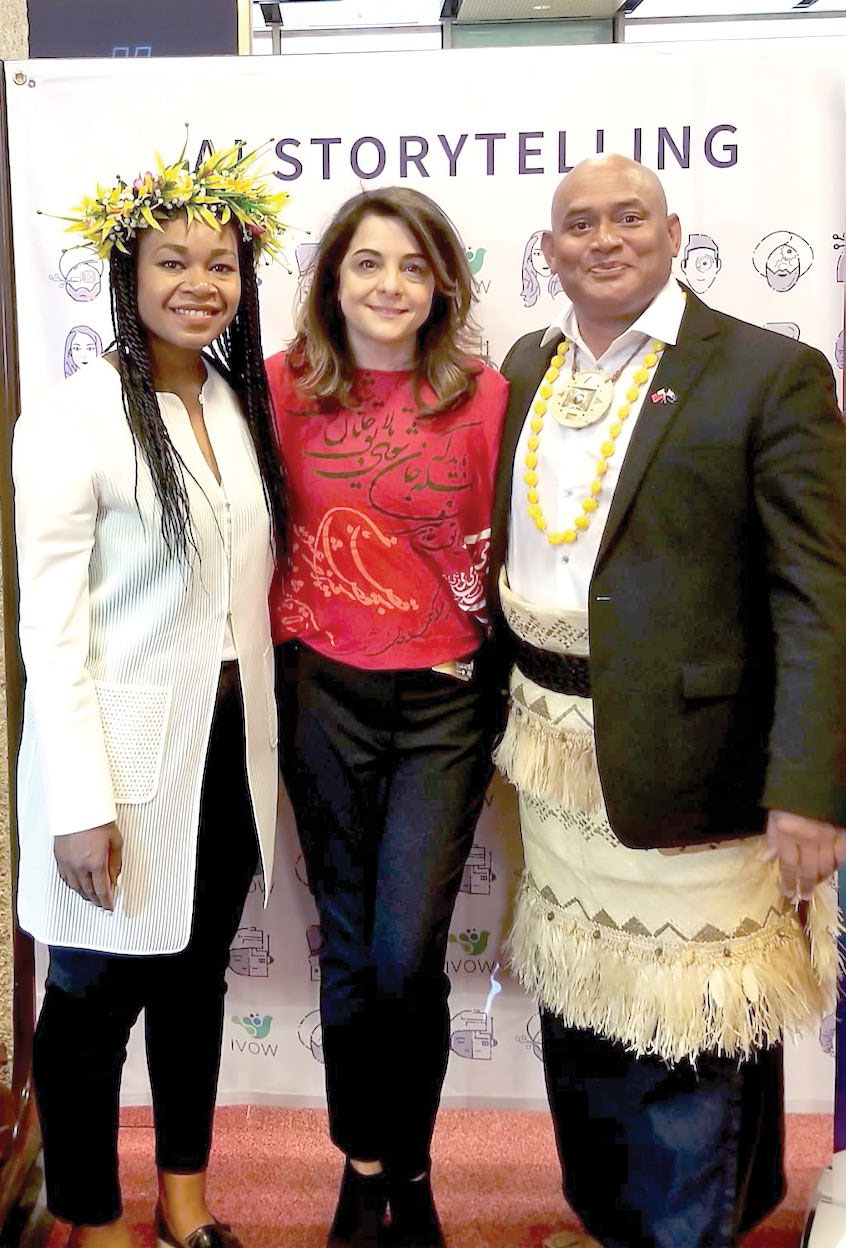
With a title like “Storyteller-in-Chief,” it might seem like the founder of IVOW is all fun and games. But the brains behind this innovative cultural storytelling startup has far more serious ambitions in mind than simply spinning an entertaining tale or two.
“The hope is to generate a new conversation around intelligent inclusion,” says Ardalan. “To invite the global public to share their heritage stories, and for AI developers to engage in the promise of storytelling as a tool to make AI systems more inclusive. A closer consideration of local cultures and traditions could greatly improve the ability of non-storytelling AI to respond to people’s values and interests.”
As a veteran journalist focused on enhancing stories by offering historical and multicultural context, Ardalan realized the gaping hole in AI algorithms could lead to a lack of clarity and true understanding in the future. She created IVOW to champion culturally conscious data strategies that would guide those in edtech, development and the business world. Her recent digital campaign asking people around the world to share their heritage stories on social media was showcased at the AI for Good Global Summit in Geneva this May.
Much of Ardalan’s career in public media was spent at NPR News, though she also spent time as a writer for Hanson Robotics and was recognized with a 2017 NASA Team Leadership award for Space Apps. Far more than a dry intellectual, she received the Gracie Award from the American Women in Radio and Television and a shout-out in the popular comic strip Zippy. In May 2014, she was the recipient of a United States Ellis Island Medal of Honor for individual achievement and for promoting cultural unity.
Tools and ideas to transform education. Sign up below.
“Today, AI systems struggle to be responsive to the values, goals, and principles of different communities. We now have too many examples of systems that reflect the biases and perspectives of the developers, rather than the people who are affected by the AI. As the daughter of an architect and a scholar, I grew up appreciating culture and history. I’m excited to launch into this next era of storytelling.”
Michael Cohen
“The Tech Rabbi”
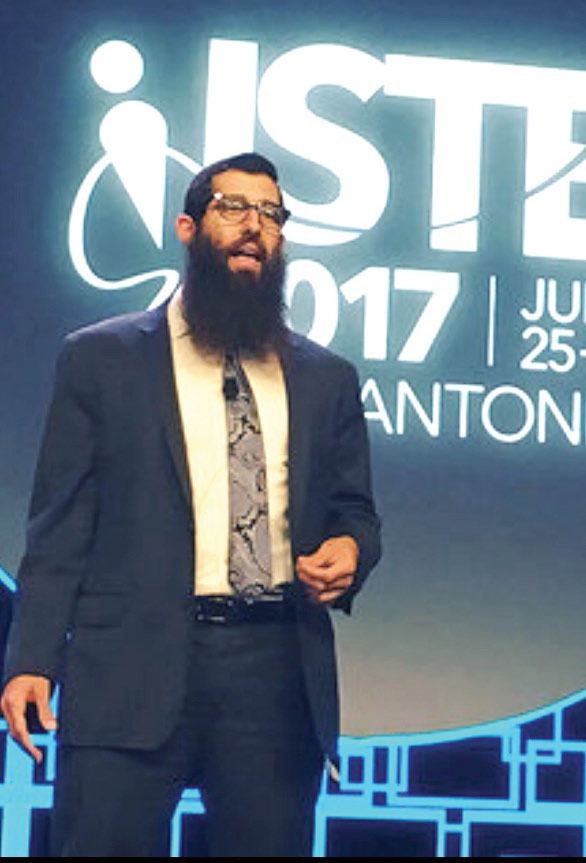
Michael Cohen, aka The Tech Rabbi, is on a mission to help young people let go of worries about being judged and develop the creative confidence they need to become challenge seekers and solution designers. Using a high-energy style, tempered with thoughtful ideas backed by measurable results, he touts a program that focuses on student empowerment and choice while challenging learners with academic rigor. This heady mix of discovery, risk taking, and reflection encourages not only students but also the educators who guide their learning.
“Creativity is a mindset that anyone can develop and grow,” says Cohen. “Creativity is about seeing the world differently. It’s about coming up with unconventional ways to express ideas and solve ‘impossible’ problems. Creativity is within reach for everyone.”
A self-described “creativity instigator,” Cohen is a keynote darling, strolling out to an infectious Michael Franti “walk-out song.” He’s entertained and inspired audiences around the world and has taken the stage at ISTE, SXSW EDU, Congreso Mexico, EdTech-Teacher Summits, and Apple Education events. Cohen works with schools to help them create and refine opportunities for students to leverage technology, media creation, and digital age skills. He helped one school, which housed only a simple computer lab, to become an Apple Distinguished School in just three short years.
His aim is to encourage intellectual curiosity and foster inquiry with an eye to finding solutions to global education challenges. He currently serves as the Director of Innovation at Yeshiva University of Los Angeles Boys High School (YULA), where he manages and teaches at the Schlesinger STEAM and Entrepreneurship Center. Cohen’s book, Educated by Design, outlines principles for revealing and nurturing an innate creative courage and capacity in learners of all ages.
Professor Larry Hedges
Yidan Prize Laureate for Education Research
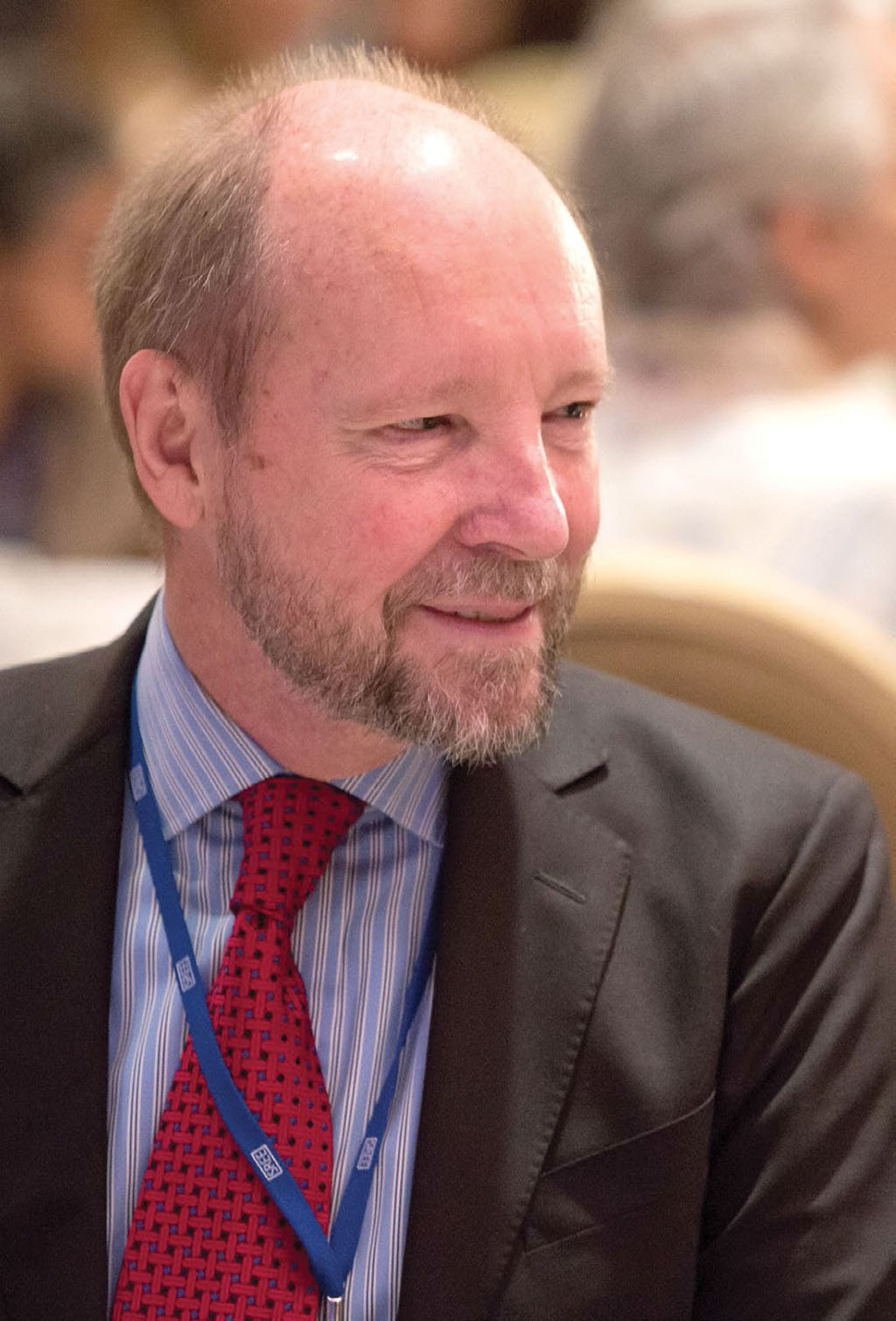
The Yidan Prize—the world’s largest award in education—is now entering its third year. The gold medal and HK$30 million (roughly 3.8 million US, half cash/half project fund) is certainly impressive, but perhaps even more valuable is the ability to establish a platform for the global community to engage in conversation around education. The 2019 summit was attended by over 400 delegates from six continents. Out of 1,000 worthy nominations from over 92 countries, Professor Larry Hedges stood out, earning him the Yidan Prize for Education Research.
“I have seen firsthand the power education has to change lives, so I am excited to pursue new research and methods to better understand how we can help students learn better, teachers to teach better, and schools to become more effective,” says Professor Hedges. “It’s important that we avoid any mistakes that can be used to discredit education science, because there are people who would prefer to make policy decisions on the basis of preferences and superstitions and prejudices rather than on the basis of evidence.”
Hedges, the chair of the Department of Statistics at Northwestern University in Chicago, is renowned for his development of the statistical methods for meta-analysis (SMMS), which can be applied in social science, medical science, and biological science. In short, he created an innovative, scientifically sound way to analyze research to demonstrate “what works” in the field of education. This evidence-based approach will serve future generations.
“Larry Hedges has given us new glasses for seeing what works in education. It’s hard to improve what we cannot see and measure,” says Andreas Schleicher, Head of the Yidan Prize Judging Panel. “Education Research provides a way to base educational improvements on scientific evidence. As we live in a time when misinformation is rife, and the quantity of available data is almost infinite, this work couldn’t come at a more critical time.’’
Professor Larry Hedges is one of the most influential applied statisticians in the world. He has authored or co-authored ten books and was nominated by President Barack Obama to the Board of Directors of the National Board for Education Sciences, confirmed by the US Senate in June 2012, and was elected Chair of the Board in 2016.
Tyler Menezes
Executive Director SRND and CodeDay
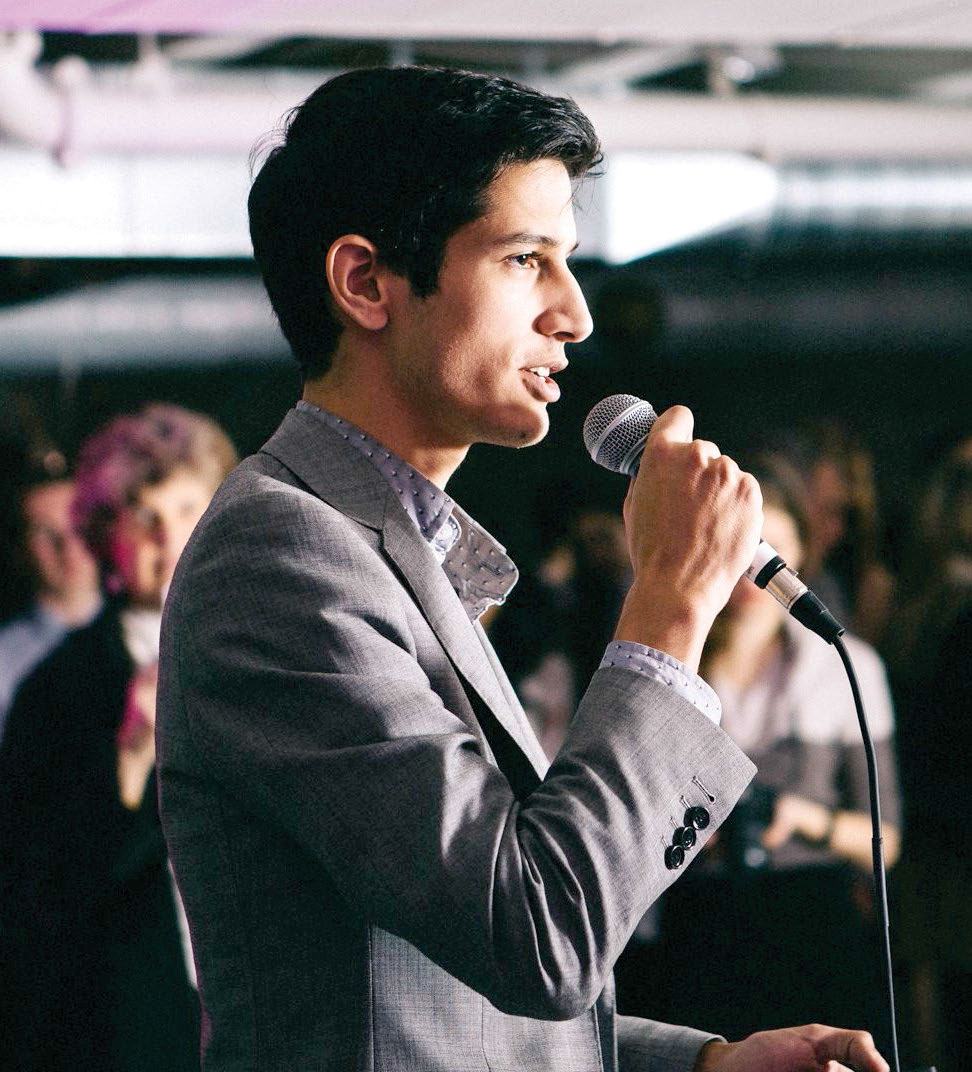
Realizing tech had a diversity problem—with women comprising only 20 percent of tech workers at leading companies and fewer than 10 percent representing Hispanic or African Americans—one nonprofit decided to tackle the issue where it starts, in our youth. An attempt to close the opportunity gap by offering computer science classes at every high school didn’t help, as few underrepresented students opted to enroll. So, Tyler Menezes, Executive Director of SRND (formerly StudentRND), decided to amp up the fun factor.
“In seventh grade, a teacher asked us to write about what we would do if given a million dollars,” says Menezes. “My essay was simple: spend it improving tech education. If my answer was ‘build electric cars and rockets,’ I might need to start by founding a wildly successful payments company, but as it stands, I can already do what I’d do if I were rich. My full-time job is getting kids excited about coding in 49 cities, through events like CodeDay.”
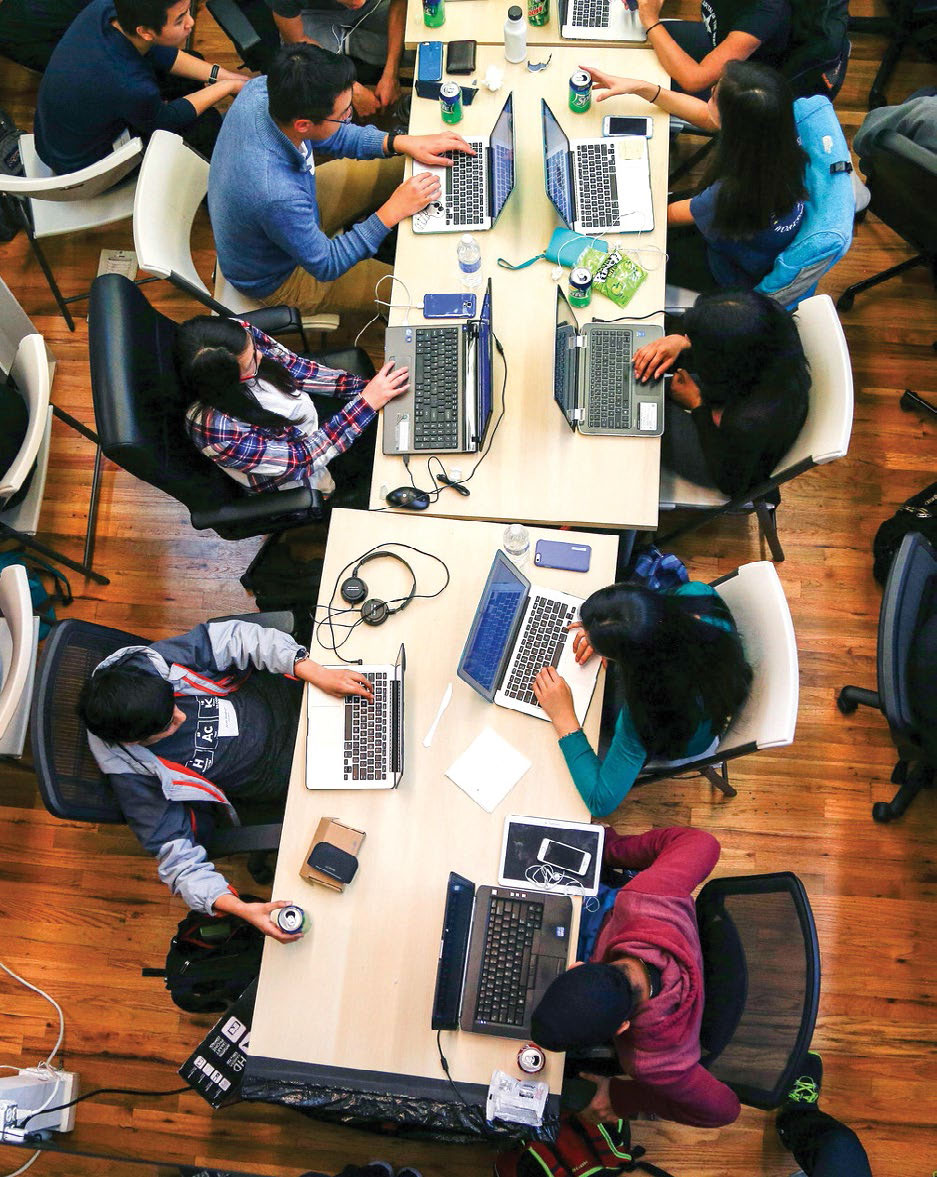
CodeDay is a 24-hour programming marathon held simultaneously three times a year in nearly 50 cities. Each CodeDay, thousands of students spend 24 hours making fun apps and games of their own design. Participants attend workshops, get help from mentors, and attempt fun no-hands typing contests and slideshow improv.
Since 2011, more than 35,000 students have attended over 350 CodeDays across the US, Canada, and Mexico. Despite being mostly beginners, attendees create hundreds of apps and games each season. SRND’s programs attract students with no prior interest in coding and inspire them to give it a try. More than 70 percent of new coders who attend are still programming several months later—resulting in over 25,000 new programmers ready to storm the industry.
“Remember the three key facts about programming: It takes almost no resources, it creates wealth, and it’s very empowering,” says Menezes. “Computing is the great equalizer.”
Milo and Nao
Humanoid Robots
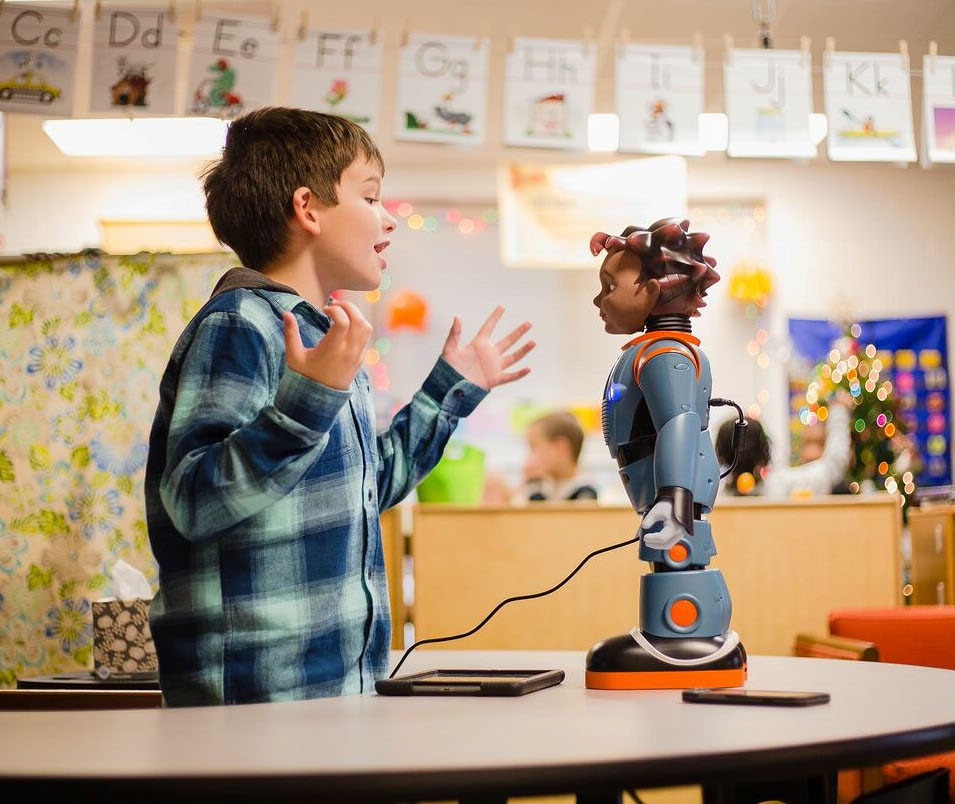
Milo is quite the engaging robot. He walks and talks, but perhaps most importantly to his young student friends with Autism Spectrum Disorder, Milo can also laugh, smile, frown, or appear surprised. His expressive face helps those with ASD practice a challenging concept: reading and connecting with the emotions of others. The child-sized robot with his predictable voice (designed by a Harvard lab and running at an ASD-ideal 82% speed) offers a human-like experience, without the intimidating experience some children can feel from connecting with actual adults and teachers.
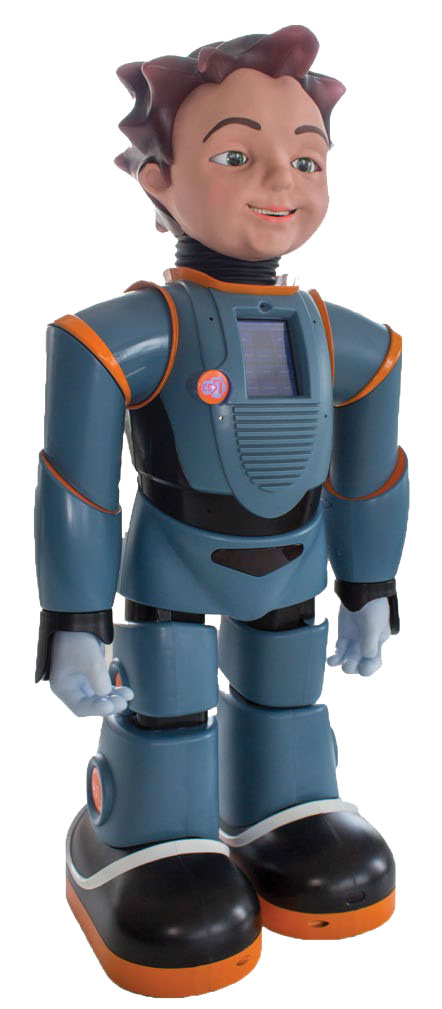
Milo can help with a variety of social skills lessons. Milo and the student might interact one-to-one, with a teacher or therapist present to help with any hurdles. Milo can demonstrate an emotion in 3D that the child is viewing on the accompanying video. A student might be asked to identify the emotion Milo is showing by tapping the corresponding choice on a tablet or iPad. A chest monitor that records the child’s heart rate changes and cameras behind Milo’s eyes record data and feedback. Milo can increase the level of challenge of the exercises as the child masters them.
These features and exercises can help kids develop and practice critical social skills, offering parents and teachers evidence-based analysis to help guide lessons and assess progress. This can help learners improve their social and behavioral skills and gain the confidence they need to succeed academically and socially in a non-threatening environment.
Milo’s distant cousin Nao, created in 2006 by Aldebaran Robotics, has been used as an educational tool in a research setting to help children with autism. But unlike affable Milo, Nao has an expressionless face so children can self-interpret his responses as they please.
Sascha has nearly two decades of experience as a freelance journalist writing for national magazines, including The Washington Post, LA Times, Christian Science Monitor, National Geographic Traveler, and others. She writes about education, travel and culinary topics.

